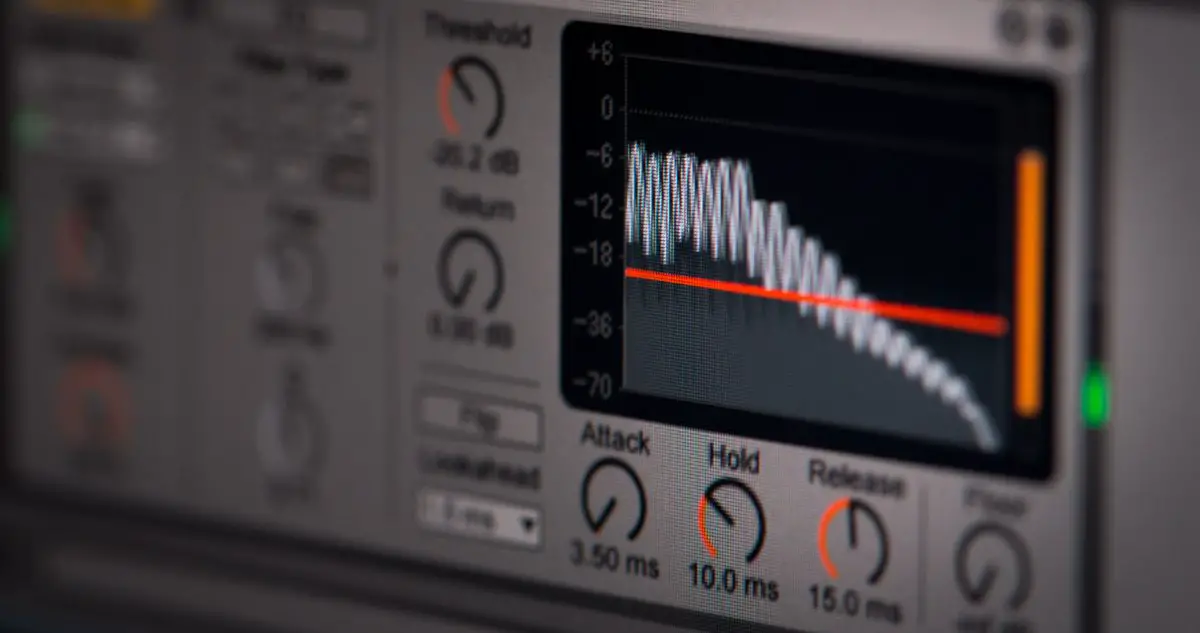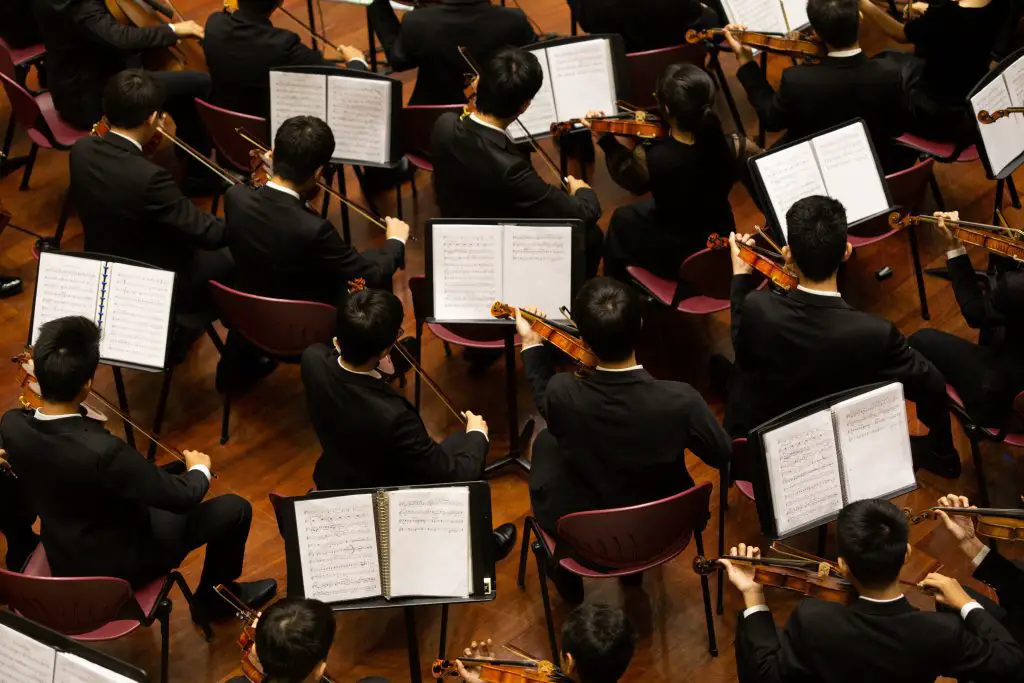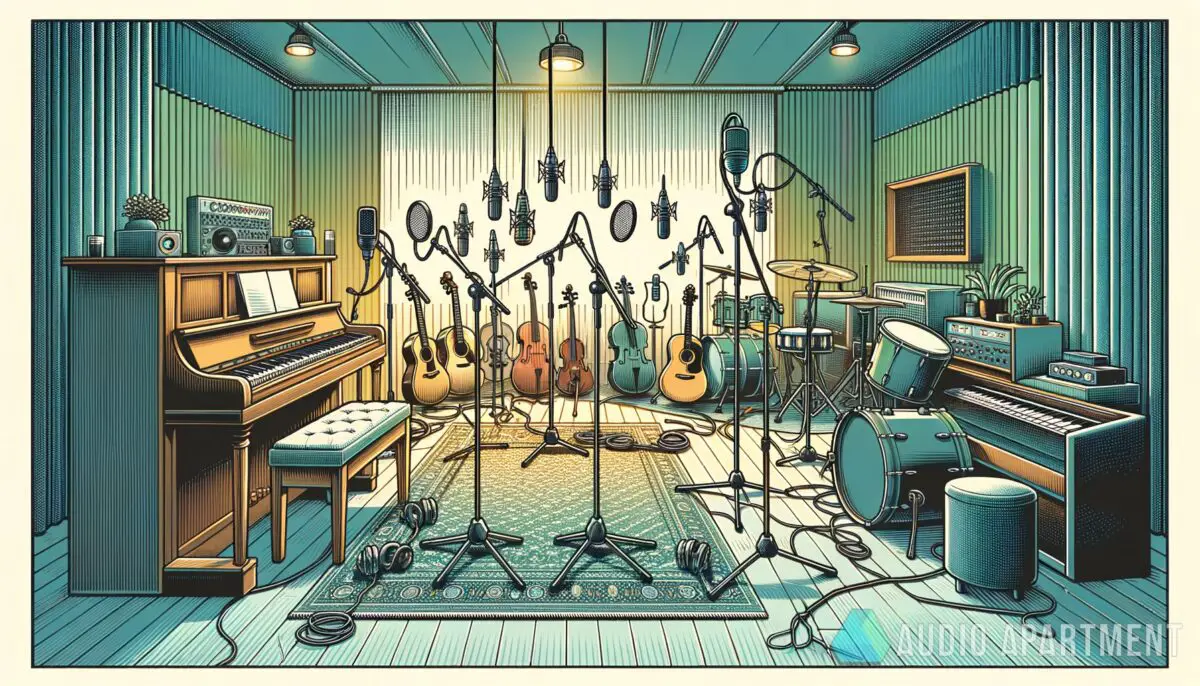Ever wondered what is intonation in music and why it’s such a big deal? Well, you’ve come to the right place. In this blog post, we’ll explore the significance of intonation, how it differs from pitch, and the factors that affect it. We’ll also share some tips on improving intonation to elevate your musical expression. Let’s dive in!
What is intonation in music? Intonation in music refers to the accuracy of pitch in playing or singing, affecting the overall musical expression and quality.
What is intonation?
Intonation in music refers to the pitch accuracy of a musician or a musical instrument. It involves playing or singing the correct pitches in relation to a standard or reference pitch. The concept of intonation applies to both individual notes and the overall tuning of a musical performance. It is essential in music because it significantly affects the quality, expressiveness, and overall musicality of a performance.

Proper intonation ensures that a singer hits the correct notes, stays on pitch throughout a phrase or performance, and maintains harmony when singing with other vocalists or accompanying instruments.
When musicians or instruments play or sing out of tune, it can result in a lack of clarity, dissonance, or unpleasantness in the music. Intonation problems can manifest as notes being played too high (sharp) or too low (flat) in relation to the desired pitch. These inaccuracies can cause a composition to sound off-key or produce dissonant intervals that clash with other notes or harmonies.
AKAI Professional MPK Mini MK3

AKAI Professional MPK Mini MK3
Why is intonation crucial to musicians?
Intonation is crucial in ensemble playing, where multiple musicians or instruments come together to perform.
When each individual is in tune with one another, the resulting harmonies and chords blend harmoniously, creating a pleasing and cohesive sound. Conversely, if even one musician or instrument is out of tune, it can create a discordant effect and diminish the overall musical experience.
In vocal music, intonation carries additional significance as it refers to the accuracy of pitch in singing. Proper intonation ensures that a singer hits the correct notes, stays on pitch throughout a phrase or performance, and maintains harmony when singing with other vocalists or accompanying instruments.

Intonation plays a vital role in music by contributing to its beauty, emotional expression, and coherence. It helps musicians create harmonious and pleasing sounds, accurately interpret a composer’s intentions, and effectively communicate the intended musical message to the listeners. By striving for precise intonation, musicians can enhance the overall quality and impact of their performance.
What is the difference between pitch and intonation?
Pitch in music refers to the perceived frequency of a sound or musical tone. It is the quality that allows us to distinguish between high and low sounds. Pitch is often associated with the physical properties of sound waves, where a higher frequency corresponds to a higher pitch, and a lower frequency corresponds to a lower pitch.
In musical terms, pitch determines the specific note or tone produced by a musician or musical instrument. For example, when playing the piano, pressing a higher key produces a sound with a higher pitch than pressing a lower key.
Achieving good intonation is crucial for musicians to perform harmonically and stay in tune with other instruments or vocalists.
On the other hand, intonation in music refers to the accuracy of pitch. It describes how well a musician or musical instrument is able to produce the correct pitch in relation to a reference or desired pitch. Intonation can be categorized as being flat (pitch too low), sharp (pitch too high), or a combination of both. In vocal music, intonation also refers to the accuracy of singing an opening phrase.
How does intonation contribute to various music genres?
Intonation plays a pivotal role in different music genres.
- In classical music, for example, precise intonation is essential for conveying the composer’s intended emotions and preserving the beauty of the piece.
- In jazz, intonation is critical for improvisation and ensuring a smooth flow during intricate solos.
- In popular music, good intonation helps create catchy hooks and memorable melodies, which can contribute to a song’s success.
If you want even more tips and insights, watch this video called “What is Intonation? | Too Afraid To Ask” from the CSGuitars YouTube channel.
Frequently asked questions (FAQ)
Do you still have questions about intonation in music? Below are some of the most commonly asked questions.
How does intonation affect a musician’s performance?
Intonation can significantly impact a musician’s performance, as it determines the accuracy of pitch and contributes to the overall musical expression. Accurate intonation helps convey emotions and connects with the audience, while poor intonation can make the performance sound off and less engaging.
Are some instruments more prone to intonation issues than others?
Yes, some instruments are more prone to intonation issues due to their design, playing techniques, or tuning mechanisms. For instance, string instruments like violins and cellos require precise finger placement, while wind instruments like trumpets and flutes rely on proper embouchure and air support.
How can musicians work on improving their intonation?
Musicians can improve their intonation by practicing with a tuner, participating in ear-training exercises, and employing specific techniques for their instruments.
Regular practice focusing on intonation challenges, collaboration with other musicians, and feedback from teachers or mentors can also significantly help in honing intonation skills.
Conclusion
Well, there you have it, folks! We’ve struck a chord with intonation in music, explored its significance, and shared some tips to keep you pitch-perfect. So, are you ready to “note-ably” improve your musical expression?
And did I cover everything you wanted to know? Let me know in the comments section below – I read and reply to every comment. If you found this article helpful, share it with a friend, and check out my full blog for more tips and tricks on music production and performance. Thanks for reading, and keep on rocking!
Key takeaways
This article covered what intonation is in music. Here are some key takeaways:
- Intonation refers to pitch accuracy in playing or singing, impacting musical expression and quality.
- Intonation is different from pitch; pitch is a specific frequency, while intonation is how well a musician can achieve that frequency.
- Factors affecting intonation include instrument characteristics, player technique, and environmental factors.
- Intonation plays a crucial role in different music genres, affecting the connection with the audience and the overall success of a performance.















